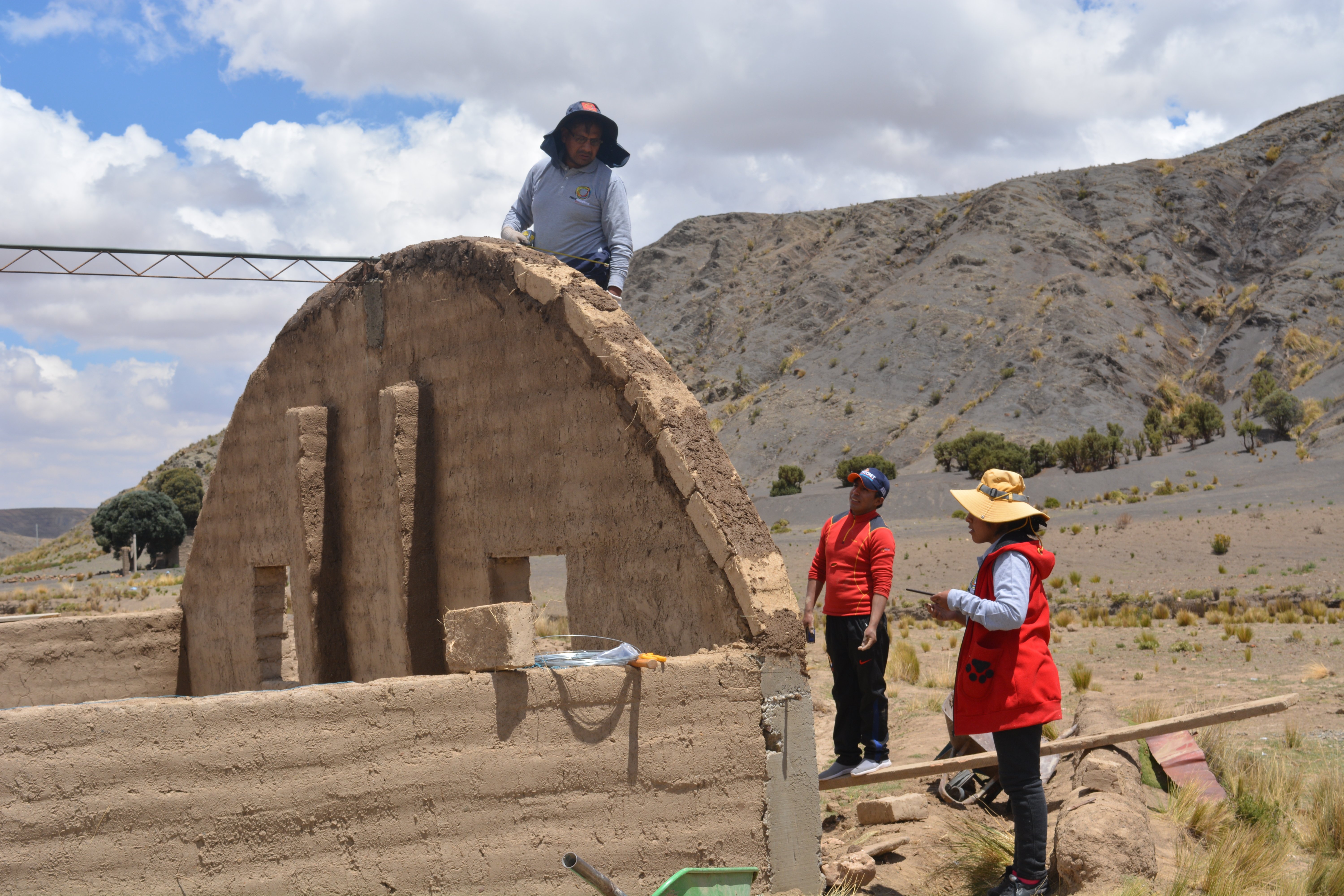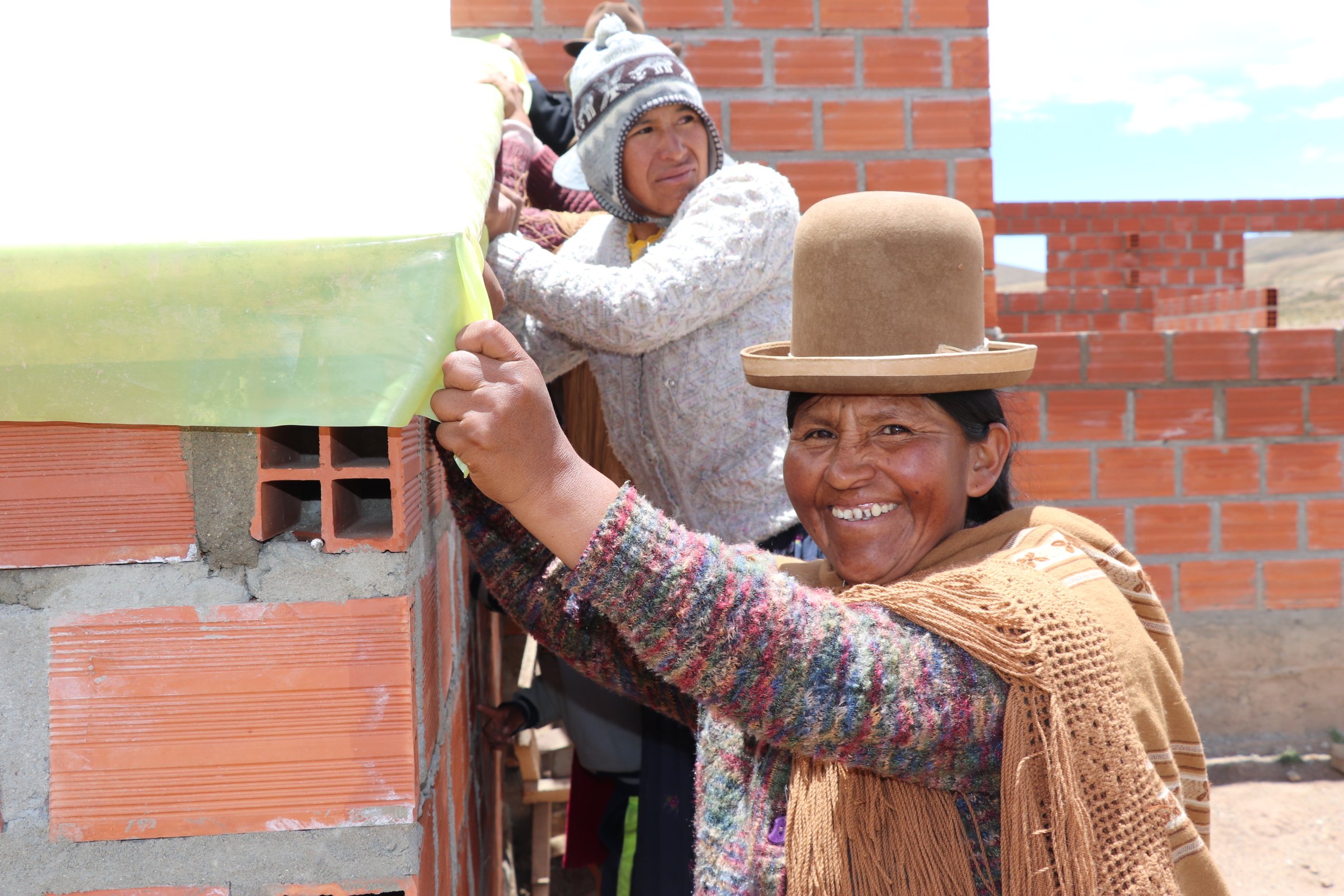Reducing Poverty with Agriculture and Economic Opportunities
The municipality of Calamarca, Bolivia, is characterized by a rugged topography, dry areas, and few water resources. Despite this, the residents who live there have relied on agriculture to support their families for food and financial stability for generations. For the past several decades, changing climate and unpredictable weather have caused economic instability throughout the region. Most residents do not have a fixed income. Instead, they rely on markets located in main cities to sell their products, something that has become more difficult over time and worsened even more since the pandemic began.
There is a strong need for reliable means of production, increased water access, improved technological capacity, and better methods with which to commercialize their products. These improvements would help stabilize the agricultural sector in the community, stimulate jobs, and increase income generation while providing hope for a brighter future and opportunities for community members to become self-reliant and build paths out of poverty.
More than a Construction Project
In response to these needs, CHOICE Humanitarian in Bolivia worked with the community of Choritotora within the municipality of Calamarca to construct ten out of thirty-six planned greenhouses in a multi-year agriculture and entrepreneurship program. This program is more than a simple construction project—it’s a business initiative that allows families to learn technical skills in how to plant vegetables, market their produce, and expand business opportunities. Program participants learn how to enter new markets, which expands the availability of nutritional foods to more local communities.

Once constructed, each greenhouse is the responsibility of a beneficiary family who maintains and utilizes it. The program encourages active participation of both women and men as well as young people in all activities. With the technical skills obtained during the different trainings, these families generate a more stable income through the sale of their produce and train more family members and other local partners, so the community continues to use the greenhouses long after CHOICE leaves.
The Early Outcomes
In 2021, CHOICE and the community worked together to construct a total of ten greenhouses, all of which are in operation. Sixteen more are planned for 2022. The trainings in agriculture and business have been well received by the communities who now make their own organic fertilizers and sell homegrown produce in local markets.
Maria Can Feed Her Family
María Huanca worked as a brick worker when she decided to look for new job opportunities. She became one of the first program recipients. "I wanted to have my own business and harvest my own vegetables to sell at the fairs and with the money earned, feed my family,” María shared. “But there are not many opportunities in my town."

With this greenhouse construction project supported by CHOICE Humanitarian, María is now a farmer producing vegetables in her greenhouse with the help of her children. Maria expressed, “Now that I have this greenhouse, I am going to plant everything I can—lettuce, radishes, chard—and with this my children will not starve… I will eventually build myself another greenhouse as I already know how to build things with bricks.”
María commits to continue her agricultural activity to ensure that the population of her community has access to the food they need. Thanks to the support of the CHOICE team in Bolivia and the Bayer Foundation, a major contributor to this program, Maria and ten other family farmers grow a variety of vegetables in their greenhouses which provide their community with fresh and nutritious organic food. In a challenging pandemic environment, this work is important to enable food security and keep livelihoods afloat.